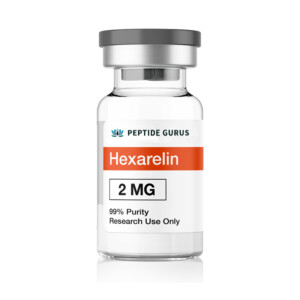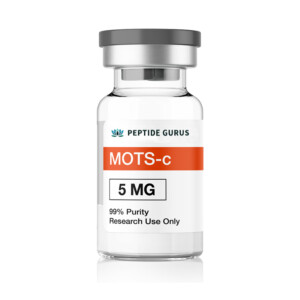In the realm of scientific research, peptides have garnered significant attention due to their versatile applications in various fields such as medicine, biotechnology, and cosmetics. Among the different types of peptides, high purity research peptides and standard peptides stand out as two distinct categories. Understanding the differences between these two types is crucial for researchers and industry professionals who rely on peptides for their work. In this article, we will delve into the characteristics, benefits, and applications of high purity research peptides as compared to standard peptides, providing a comprehensive guide for those looking to make informed decisions in their peptide-related endeavors.
High purity research peptides are characterized by their exceptional purity levels, often exceeding 95% or even 98%. This high degree of purity is achieved through rigorous synthesis and purification processes, ensuring that the final product is free from impurities and contaminants. As a result, high purity research peptides are highly sought after in scientific research, where precision and accuracy are paramount. These peptides are particularly valuable in applications that require consistent results, such as drug development, biochemical assays, and structural biology studies. By contrast, standard peptides may contain a higher level of impurities, which can potentially interfere with experimental outcomes and lead to unreliable data.
The synthesis of high purity research peptides involves advanced techniques such as solid-phase peptide synthesis (SPPS) and high-performance liquid chromatography (HPLC). These methods allow for precise control over the peptide’s sequence and purity, ensuring that the final product meets stringent quality standards. SPPS, in particular, is a widely used method that enables the sequential addition of amino acids to a growing peptide chain, minimizing the risk of errors and contamination. HPLC, on the other hand, is employed to separate and purify the synthesized peptides, removing any unwanted by-products or impurities. In contrast, the production of standard peptides may not involve such meticulous processes, resulting in products with lower purity levels.

One of the primary benefits of using high purity research peptides is the increased reliability and reproducibility of experimental results. In scientific research, consistency is key, and the presence of impurities in standard peptides can lead to variations in experimental outcomes. High purity research peptides, with their minimal impurity levels, provide researchers with a dependable foundation for their studies, allowing for more accurate data interpretation and analysis. This reliability is particularly important in fields such as pharmacology and toxicology, where precise measurements are crucial for the development of safe and effective drugs.
In addition to their high purity, research peptides are often custom-made to meet specific research requirements. This customization allows researchers to design peptides with precise sequences and modifications, enabling them to explore specific biological pathways or interactions. Custom peptides can be tailored to mimic natural proteins, inhibit enzyme activity, or serve as antigens for antibody production. This level of customization is not typically available with standard peptides, which are often limited to a set of predefined sequences and modifications. As a result, high purity research peptides offer greater flexibility and versatility in experimental design.
The applications of high purity research peptides extend beyond traditional scientific research. In the pharmaceutical industry, these peptides are used in the development of peptide-based therapeutics, which have shown promise in treating a range of diseases, including cancer, diabetes, and infectious diseases. The high purity of these peptides ensures their safety and efficacy, as impurities can potentially lead to adverse effects or reduced therapeutic activity. Similarly, in the cosmetics industry, high purity peptides are used in anti-aging and skin care products, where their purity is essential for ensuring product safety and effectiveness.
While high purity research peptides offer numerous advantages, they also come with a higher cost compared to standard peptides. The advanced synthesis and purification processes required to achieve high purity levels contribute to the increased price of these peptides. For researchers and organizations with limited budgets, this cost can be a significant consideration when choosing between high purity research peptides and standard peptides. However, the benefits of increased reliability, reproducibility, and customization may outweigh the additional cost, particularly in critical applications where precision is paramount.
Standard peptides, on the other hand, are generally more affordable and accessible, making them a popular choice for routine laboratory experiments and educational purposes. These peptides are often used in applications where the presence of impurities is less likely to impact the overall results, such as basic biochemical assays or preliminary studies. For researchers who do not require the highest level of purity, standard peptides can provide a cost-effective solution that allows them to conduct experiments without exceeding their budget constraints.
The choice between high purity research peptides and standard peptides ultimately depends on the specific requirements and goals of the research project. For experiments that demand the highest level of precision and accuracy, high purity research peptides are the preferred choice. These peptides provide researchers with the confidence that their results are reliable and reproducible, minimizing the risk of errors and discrepancies. In contrast, for more routine experiments or preliminary studies, standard peptides may suffice, offering a balance between cost and performance.

In conclusion, high purity research peptides and standard peptides serve distinct purposes in the scientific community. High purity research peptides, with their exceptional purity and customization options, are ideal for critical applications where precision and reliability are essential. Standard peptides, while less pure, offer a more affordable option for routine experiments and educational purposes. Researchers must carefully consider their specific needs and budget constraints when choosing between these two types of peptides, ensuring that they select the most appropriate option for their work.
The growing demand for high purity research peptides is driven by the increasing complexity of scientific research and the need for precise and accurate data. As researchers continue to explore new frontiers in medicine, biotechnology, and other fields, the role of high purity research peptides will only become more prominent. By providing a reliable and customizable tool for scientific inquiry, these peptides are poised to play a crucial role in advancing our understanding of complex biological systems and developing innovative solutions to pressing global challenges.
Moreover, the continued advancements in peptide synthesis and purification technologies are expected to further enhance the quality and accessibility of high purity research peptides. As these technologies become more refined and cost-effective, the gap between high purity research peptides and standard peptides may narrow, making high purity options more accessible to a wider range of researchers and organizations. This evolution will likely lead to an increased adoption of high purity research peptides across various fields, driving innovation and discovery.
For researchers new to the field of peptide research, understanding the nuances of peptide purity can be challenging. It is important to consult with experienced professionals and suppliers who can provide guidance on selecting the appropriate peptides for specific applications. By leveraging the expertise of industry experts, researchers can ensure that they are making informed decisions that align with their research goals and budgetary constraints.
In summary, the choice between high purity research peptides and standard peptides is a critical decision that can significantly impact the success of scientific research. High purity research peptides offer unparalleled precision and reliability, making them the ideal choice for applications where accuracy is paramount. Standard peptides, while more affordable, may be suitable for less demanding experiments. Researchers must weigh the benefits and drawbacks of each option to determine the best fit for their specific needs.
As the field of peptide research continues to evolve, it is essential for researchers to stay informed about the latest developments and trends. By keeping abreast of advancements in peptide synthesis and purification technologies, researchers can make strategic decisions that enhance the quality and impact of their work. The future of peptide research holds great promise, and high purity research peptides are set to play a pivotal role in shaping the next generation of scientific discoveries.
In conclusion, the decision to use high purity research peptides versus standard peptides hinges on the specific requirements of the research project. High purity research peptides offer exceptional quality and reliability, making them indispensable for critical applications. Standard peptides provide a cost-effective alternative for less demanding experiments. Researchers must carefully evaluate their needs and resources to make the most informed choice.
The landscape of peptide research is continually evolving, with new technologies and methodologies emerging to enhance the quality and accessibility of peptides. As these advancements continue to unfold, the distinction between high purity research peptides and standard peptides may become less pronounced, offering researchers a broader range of options to choose from. This evolution will likely lead to new opportunities for innovation and discovery in the field of peptide research.
Ultimately, the choice between high purity research peptides and standard peptides is a reflection of the researcher’s priorities and objectives. Those who prioritize precision and reliability may opt for high purity research peptides, while those with budgetary constraints may find standard peptides to be a more viable option. By carefully considering the advantages and limitations of each type, researchers can make informed decisions that align with their research goals.
The future of peptide research is bright, with high purity research peptides playing a central role in advancing our understanding of complex biological systems. As researchers continue to push the boundaries of scientific inquiry, the demand for high purity research peptides is expected to grow, driving innovation and discovery across various fields. By providing a reliable and customizable tool for scientific research, these peptides are poised to make a lasting impact on the scientific community.
In conclusion, high purity research peptides and standard peptides each have their place in the world of scientific research. High purity research peptides offer unparalleled precision and reliability, making them the ideal choice for critical applications. Standard peptides provide a more affordable option for routine experiments. Researchers must carefully consider their specific needs and budget constraints when choosing between these two types of peptides, ensuring that they select the most appropriate option for their work.
PeptideGurus is a leading supplier of American-made research peptides, offering top-quality products at competitive prices. With a focus on excellence and customer service, they ensure a secure and convenient ordering process with global shipping.
CONTACT